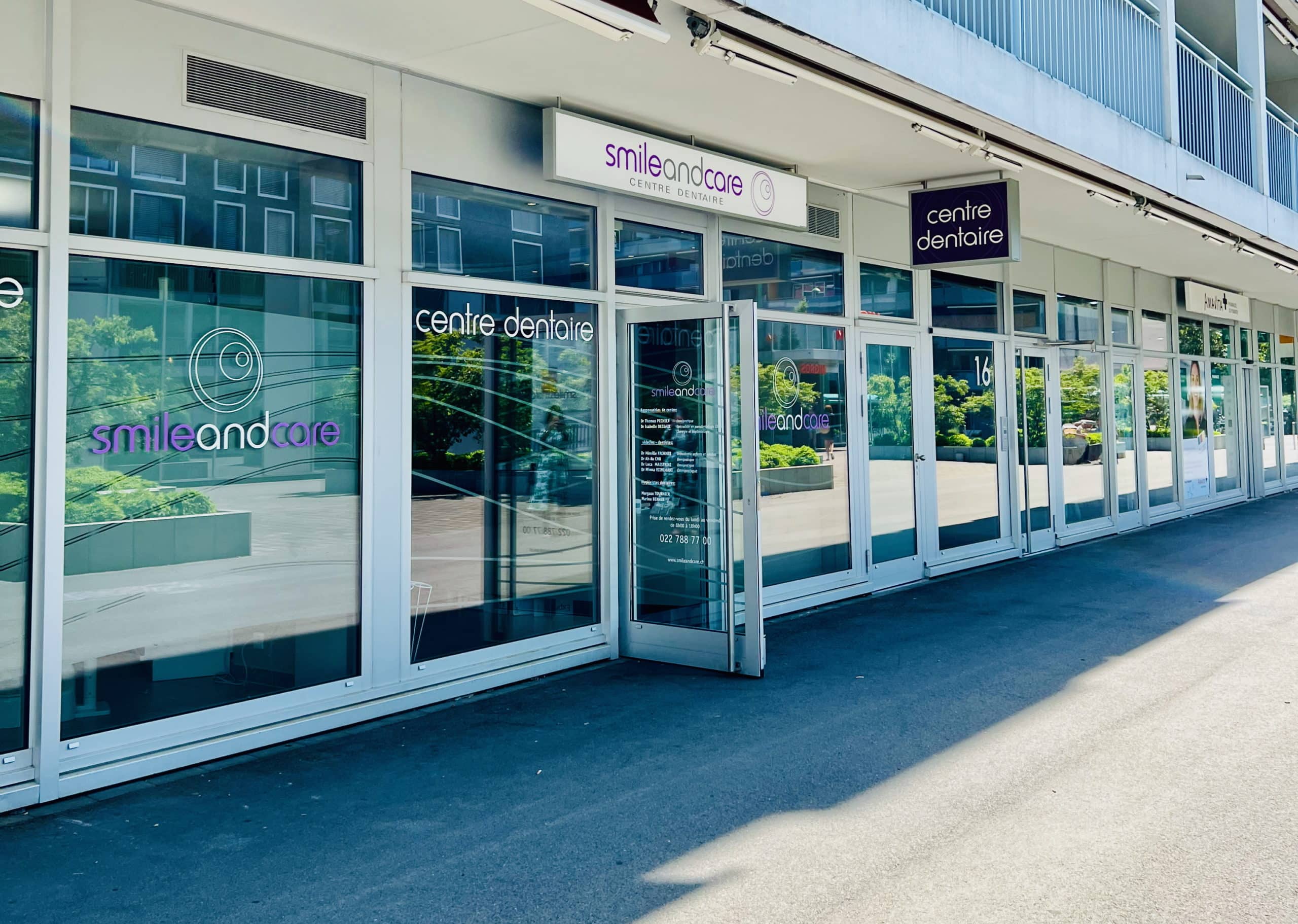Definition
Dental implantology is a branch of dentistry that plays a key role in care for seniors, offering suitable solutions to replace missing teeth. Dental implants, consisting of artificial titanium roots inserted into the jawbone, offer a durable and comfortable alternative, essential for preserving the quality of life and oral health of older people.
These implants serve as a support for fixed prosthetics such as crowns, bridges or full dentures.
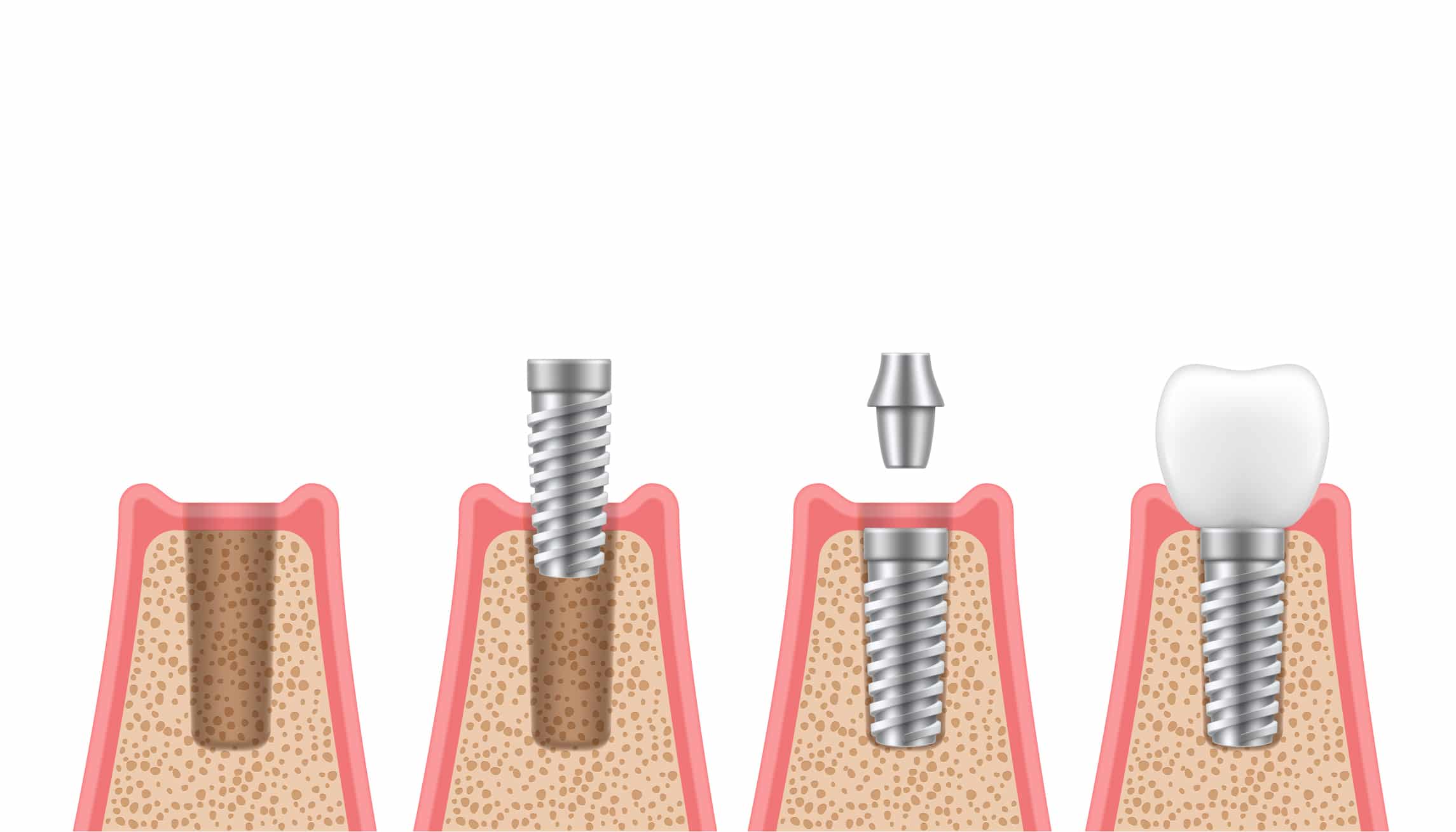
Your advantages
The dental implant
- A biocompatible titanium screw inserted into the jawbone.
- Acts as an artificial root.
The osseointegration
- The process whereby the implant fuses with the surrounding bone, ensuring a solid and lasting fixation.
The fitting of the prosthetics
- A crown, bridge or removable prosthetics is fixed to the implant after healing.

Dental implants have many advantages for seniors
Durability: Long lifespan (10 to 20 years or more).
Comfort: Feels like natural teeth.
Aesthetics: Natural and harmonious result.
Bone preservation: Stimulates the alveolar bone and prevents resorption.
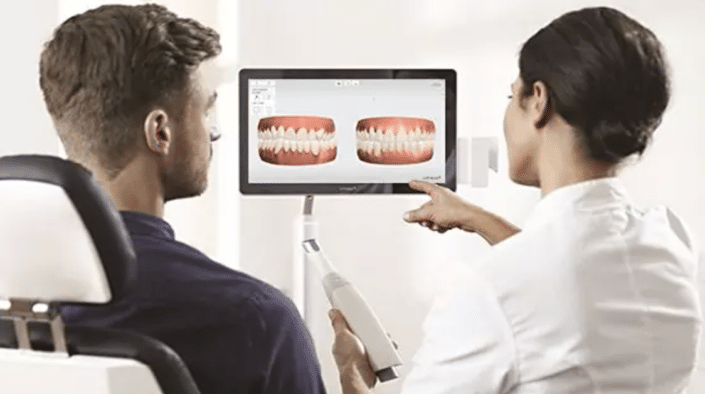
Steps in the treatment
Examination and planning
- X-rays or 3D scanner to assess the bone.
- Personalised treatment plan.
Implant placement
- Surgical procedure under local anaesthetic.
- The implant is inserted into the jawbone.
Healing period
- 3 to 6 months to allow osseointegration.
Prosthetics fitting
- A crown, bridge or prosthetics is attached to the implant.
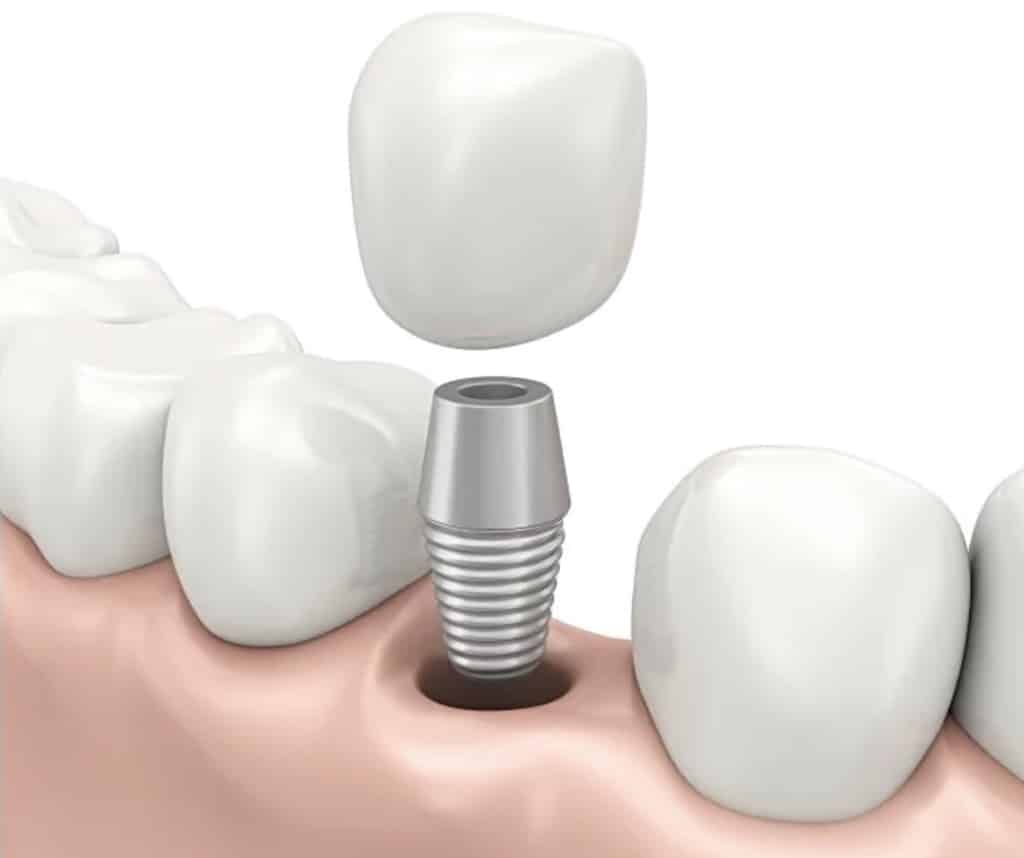
The crown supported by an implant
The crown is made by the dental prosthetics laboratory from a digital impression taken approximately 3 months after the implant is fitted. This crown is screwed onto the implant post.

What follow-up and care is needed after an implant is fitted?
Professional monitoring by the dentist and dental hygienist, as well as good personal oral hygiene, are essential elements to guarantee the long-term success of implant therapy, particularly in the case of senior citizens.
In our practice, we recommend an annual implant check-up by the dentist, accompanied by two scaling sessions per year by the dental hygienist, in order to meet the specific needs of older patients.
Our before and afters
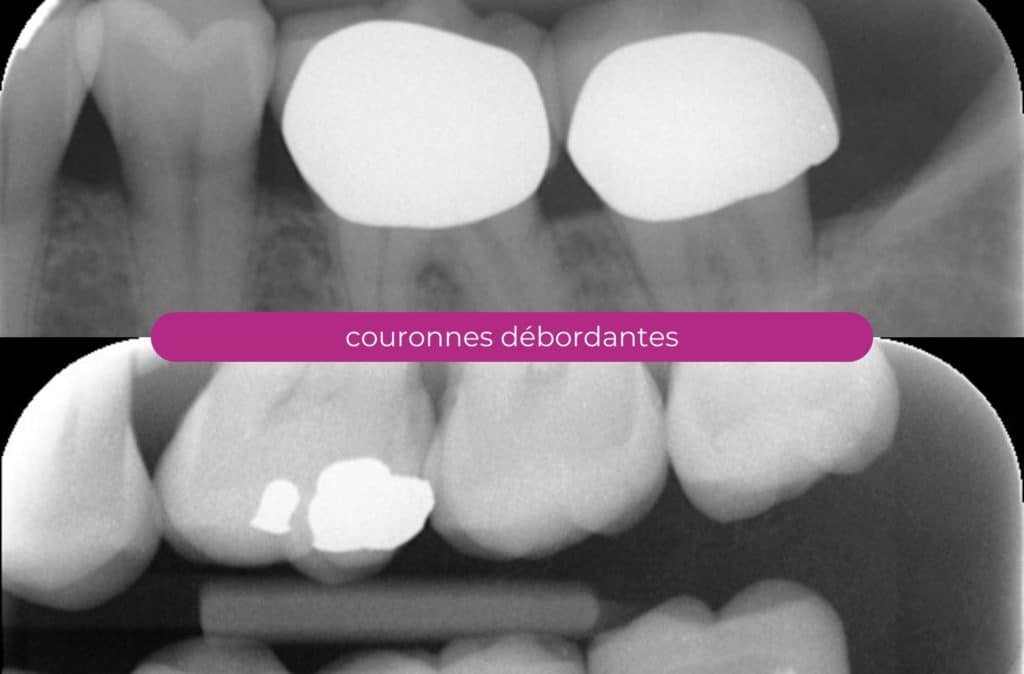
Make an appointment at one of our two clinics
